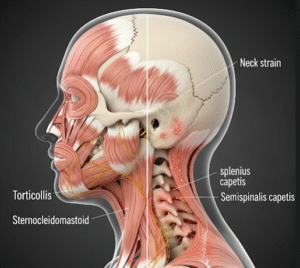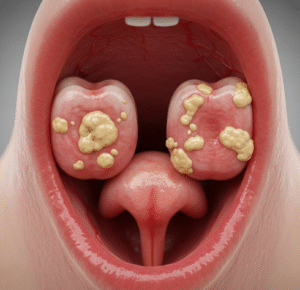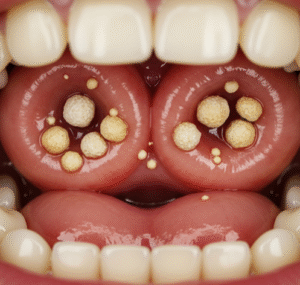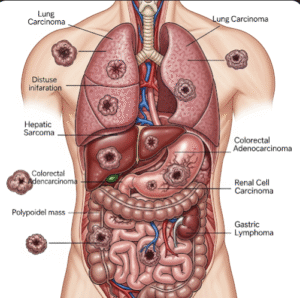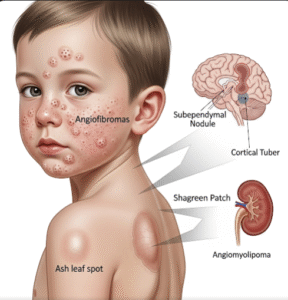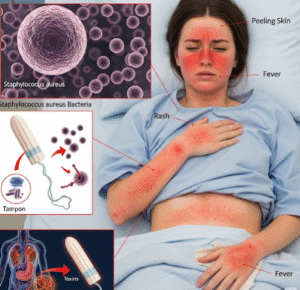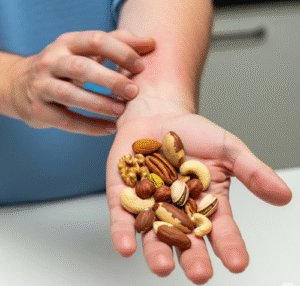Overview
Threadworms, also known as pinworms or Enterobius vermicularis, are a common intestinal parasitic infection, especially in children. They cause discomfort, itching, and sleep disturbances but are rarely life-threatening. South Korea has effective diagnostic, treatment, and prevention strategies for pinworm infections. Public health initiatives and clinical care focus on rapid identification, medication, hygiene education, and family-wide management to prevent reinfection and reduce the spread of these parasites.
What are Threadworms (Pinworms)?
Threadworms are small, white, thread-like intestinal worms that inhabit the colon and rectum. Adult female worms migrate to the perianal area, particularly at night, to lay eggs, which is the primary cause of itching and discomfort. The lifecycle of the pinworm involves ingestion of eggs, hatching in the small intestine, maturation in the colon, and egg-laying at the perianal region. This cycle can perpetuate within households, making family-wide hygiene and treatment essential. Korean clinics emphasize early detection and comprehensive treatment to break the transmission cycle and ensure full recovery.
Symptoms
Symptoms of threadworm infection can range from mild to bothersome, and may include:
- Intense itching around the anus, especially at night
- Restlessness and difficulty sleeping due to nocturnal discomfort
- Irritability, fatigue, or behavioral changes in children
- Occasional abdominal pain, nausea, or loss of appetite
- Visible worms in stools or around the anal area
- Secondary skin infections due to scratching
- Rarely, in females, worms may migrate to the vaginal area, causing irritation or discharge
Prompt recognition of these symptoms allows for early treatment, preventing complications and household transmission.
Causes
Threadworm infections are caused by ingestion of Enterobius vermicularis eggs. Common transmission routes include:
- Contaminated hands after scratching the perianal area
- Ingestion of eggs from contaminated food, surfaces, clothing, or bedding
- Direct person-to-person contact within households, schools, or daycare centers
- Environmental contamination, as eggs can survive on surfaces for up to two weeks
The highly contagious nature of threadworms makes hygiene and early treatment critical in controlling outbreaks.
Risk Factors
Certain factors increase susceptibility to threadworm infections:
- Young age, particularly children aged 5–10 years
- Attendance at schools, daycare centers, or group childcare facilities
- Close living conditions or crowded households
- Poor hand hygiene or infrequent washing of hands and nails
- Sharing bedding, clothing, or towels with infected individuals
- Touching contaminated surfaces such as toys, doorknobs, or bathroom fixtures
Korean public health programs and schools often educate children and parents on proper hygiene practices to reduce infection risk.
Complications
Although threadworm infections are generally mild, untreated or persistent infections can lead to complications:
- Sleep disturbances leading to fatigue, irritability, and reduced concentration
- Secondary bacterial infections from excessive scratching of the anal area
- Vaginal or urinary tract infections in females if worms migrate to the genital region
- Rarely, weight loss or malnutrition due to prolonged infection
- Emotional distress or anxiety in children due to itching and discomfort
Prompt diagnosis and treatment in South Korea help prevent these complications and improve quality of life.
Prevention
Preventive measures focus on interrupting the transmission cycle and maintaining proper hygiene:
- Hand hygiene: Frequent handwashing with soap, especially after using the toilet and before meals
- Nail care: Keeping fingernails short and clean to prevent egg accumulation
- Daily washing: Clean perianal area in the morning to remove eggs
- Laundry and bedding: Frequent washing of clothes, bed linens, and towels in hot water
- Household cleaning: Disinfecting surfaces, toys, and bathrooms to reduce egg contamination
- Education: Teaching children about hygiene, avoiding nail-biting, and refraining from scratching
- Family-wide treatment: Treating all household members simultaneously to prevent reinfection
In South Korea, community health programs often combine education, hygiene promotion, and monitoring to reduce threadworm prevalence.
Treatment Options in Korea
Treatment for threadworms in South Korea involves safe, effective medications and supportive measures:
Diagnosis:
- Clinical evaluation based on symptoms and family history
- Visualization of worms on perianal skin or in stool
- “Tape test” using transparent adhesive tape to collect eggs for microscopic examination
Medical Treatments:
- Anthelmintic medications: Mebendazole, albendazole, or pyrantel pamoate are commonly prescribed
- Dosage: Usually a single dose, repeated after two weeks to eliminate newly hatched worms
- Family treatment: Simultaneous treatment of all household members to prevent reinfection
Supportive Care:
- Maintaining strict hygiene practices during and after treatment
- Washing clothing, bedding, and towels in hot water
- Cleaning and disinfecting frequently touched surfaces
Follow-up:
- Monitoring for recurrence or persistent symptoms
- Reinforcing education on handwashing, nail hygiene, and environmental cleaning
- Counseling families on preventing future infections
South Korea’s healthcare system combines medical therapy with public health education, ensuring effective management of threadworm infections, rapid symptom resolution, and long-term prevention.



